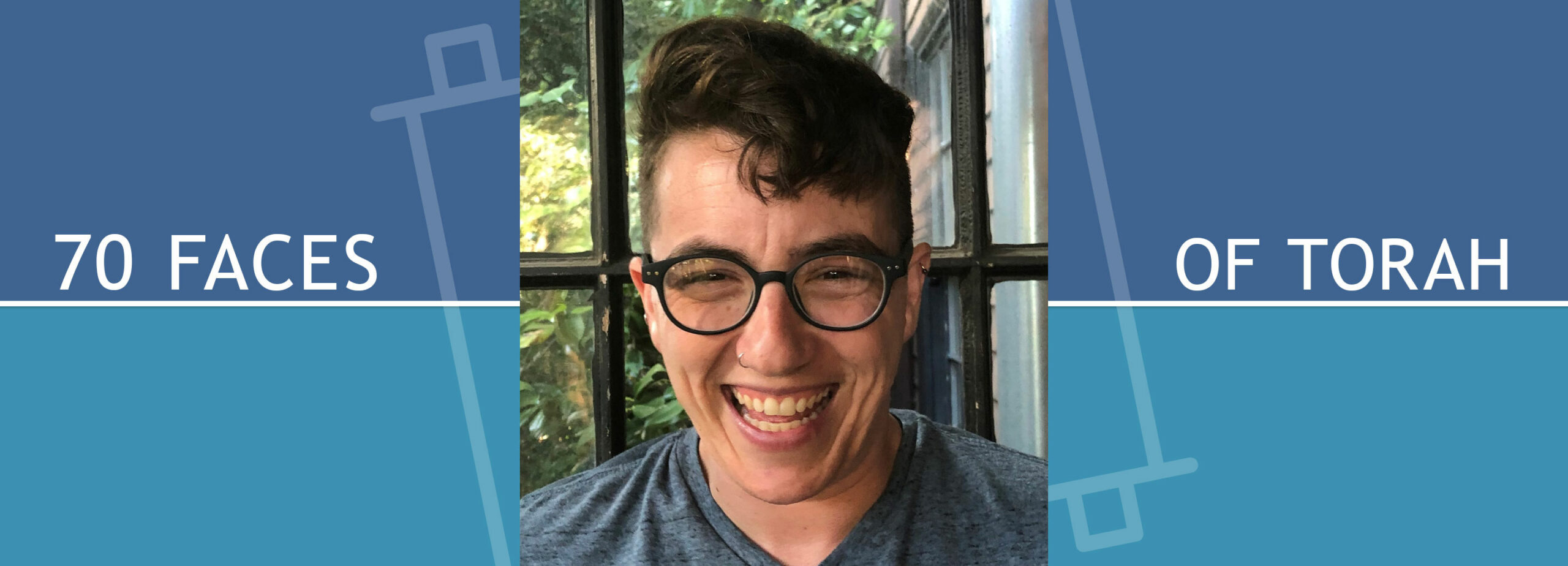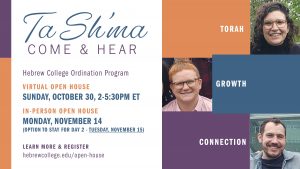Jewish learning Journeying with Blessings

Parashat Lech Lecha (Genesis 12:1-17:27)
וַיֹּאמֶר יְהֹוָה אֶל־אַבְרָם לֶךְ־לְךָ מֵאַרְצְךָ וּמִמּוֹלַדְתְּךָ וּמִבֵּית אָבִיךָ אֶל־הָאָרֶץ אֲשֶׁר אַרְאֶךָּ׃
God said to Abram, “Go forth from your native land and from your father’s house
to the land that I will show you.”
What a powerful encapsulation of what it is like to make massive change in one’s life! In speaking to Avram (later Avraham), God names him, where he came from, and where he is going. God paints a powerful image of the past, מֵאַרְצְךָ וּמִמּֽוֹלַדְתְּךָ וּמִבֵּית אָבִיךָ–from your land, from the place you were born, the house of your father. God presents the future with evocative mystery, אֶל־הָאָרֶץ אֲשֶׁר אַרְאֶךָּ–to the land that I will show you, and highlights the importance of the self, לֶךְ־לְךָ–YOU go.
When you look at commentaries on this line over the centuries, they pick up on these themes in certain predictable ways–the YOU of “YOU go” is seen as a sign that the journey is for Avraham’s own good; the past described becomes the dark foil to Avraham’s bright future. Meanwhile, “the land that I will show you,” becomes the specific land, which is later described in detail and which Avraham’s descendants wandered towards and yearned for.
Both God, in giving this blessing, and we, as readers of it, know how the story ends; we’re here reading it, so God’s promise of greatness must have come true; the pain of departure must have been justified.
But how did it feel for Avraham?
I encounter the words that open this parashah in light of my own Big Life Transitions–graduating rabbinical school, moving across the country, starting to build my own Jewish community. Given what I know about big change, and what immediately follows Avraham’s departure on his journey, the seemingly sinister nature of Avraham’s past and the glowing nature of his future both feel more murky.
In the chapters to come, there are many obstacles. Avraham encounters famine, he brings along his nephew (and the feuds and infighting that come with extended family), he makes countless missteps in trying to connect with his new neighbors, and managing his own family proves thorny when Sarah is first barren and then, after miraculously conceiving, is plagued with jealousy and doubt.
I’m struck by how misaligned the stories we tell about these words feel with the realities that immediately follow.
A conversation with a friend, and by proxy their B’ Mitzvah students, pinpointed the dissonance. The students wondered about Avraham’s life in the house of his father, the idol maker. To their question I add more: as Avraham journeyed around the Middle East searching for food and a place to call home, what else did he carry with him, beyond the family feuds and his baggage about idols? Did he learn from his father about the nature of holiness and how to cultivate and access it, even as he ultimately chose a different path? Would his father have provided useful counsel for his marital strife?
Avraham’s invitation from God continues with a few more hopeful and inspiring lines; the promise that “all the families of the earth shall bless you,” feels like a pretty good sign that he can trust his gut through the morally ambiguous moments that unfold. But I also think that God’s opening line, which reminds Avraham of his home in three different ways, is itself a source of strength. Rather than an injunction for distance, God could be saying: remember that you’ve been training for this your whole life–you’ve learned how to tend to the land, you’ve been shaped by your culture, and the values (if not the rituals and practices) of your father’s house can continue to guide you and sustain you on this journey, especially when the hope of a bright future feels far off. Because how could Avraham be a blessing for all the families of the earth in that far-off future without bringing a little blessing from the family that raised him?
Please contact the author if you’d like to share any feedback.
Rabbi Frankie Sandmel (they/them), Hebrew College ‘22, runs Base Bay where, together with their partner Elaina, they are building a vibrant, rooted, and resonant Jewish community out of their home in Oakland. In their free time, Frankie is a fellow with SVARA: A Traditionally Radical Yeshiva and they bake a lot of cookies.


